On this day, 160 years ago, Henri de Toulouse-Lautrec was born. As a post-impressionist, Toulouse-Lautrec observed and documented with great psychological insight the personalities and facets of Parisian nightlife and the French world of entertainment in the 1890s, and brought to life the worlds of Moulin Rogue. READ about his work… (1864)
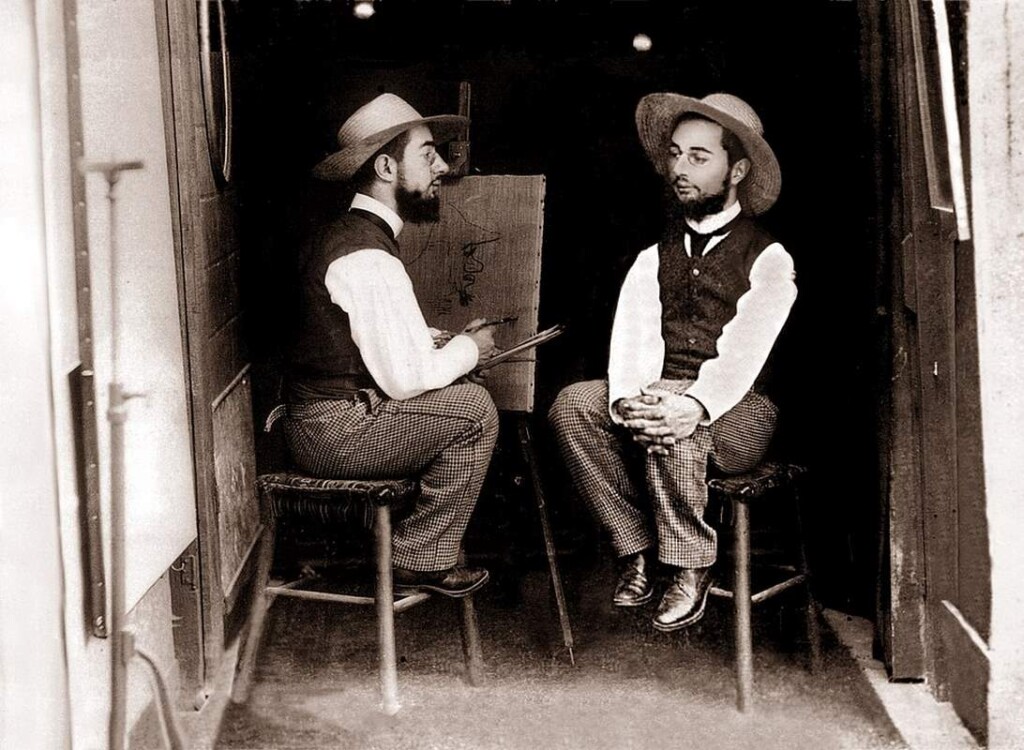
Henri must have been a very interesting character. Born of a noble family, but stunted near to dwarfism because of an accident and a rare disease, he was nevertheless outgoing and generous. He was a very hospitable cook, and even had a cookbook published posthumously. He drank heavily and frequented brothels and cabarets, saying that the women there “make no demand and they are not in the least bit conceited,” compared with other models he might have paid to sit for him for portraits.
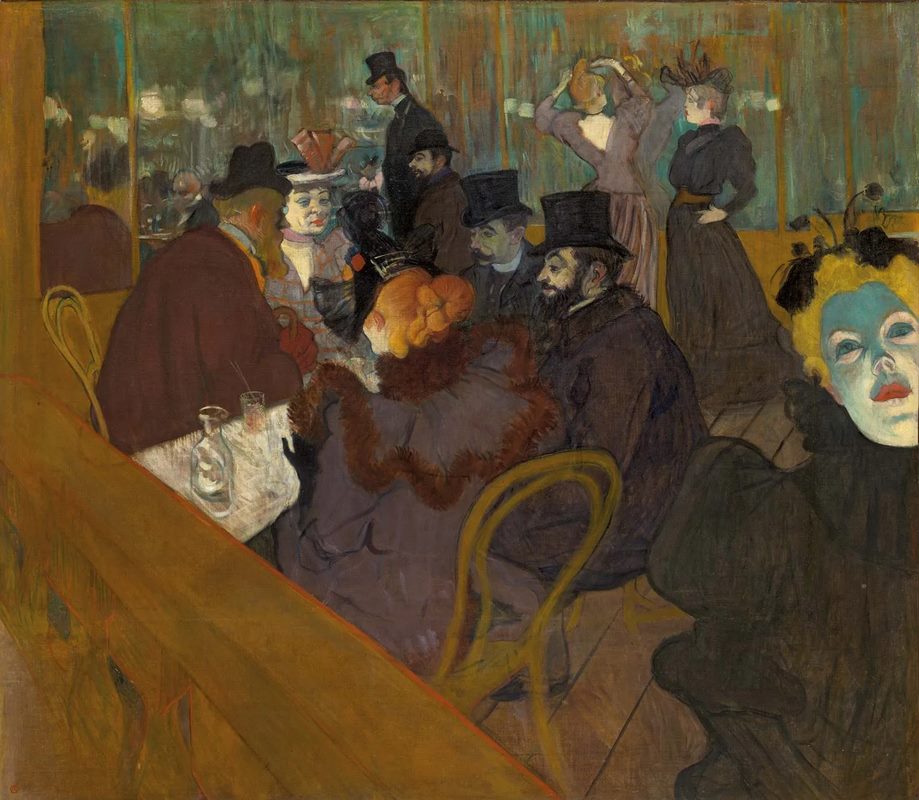
When the Moulin Rouge cabaret opened in 1889, Toulouse-Lautrec was commissioned to produce a series of posters. His mother had left Paris and, though he had a regular income from his family, making posters offered him a living of his own. Other artists looked down on the work, but he ignored them. The cabaret reserved a seat for him and displayed his paintings
MORE Good News on this Date:
- Happy 83rd Birthday to Pete Best, the first drummer hired by The Beatles during their earliest years to play live in Hamburg and England—who later was replaced by Ringo Starr (1941)
- Donald Johanson and Tom Gray discovered an extraordinary skeleton, nicknamed ‘Lucy,’ in Ethiopia’s Awash Valley–the 40% complete female Australopithecus afarensis that provided a huge treasure of scientific evidence (1974)
- The United States and Soviet Union agreed to the INF treaty that eliminated the entire class of short- and medium-range nuclear missiles from both countries (1987)
- The entire leadership of the hard-line Communist Party in Czechoslovakia resigned after more than a week of protests against its policies to make way for democratic changes (1989)
- Pubs in England and Wales were granted the right to stay open 24 hours a day (2005)
15 years ago today, Project Avdhela was launched to create a digital Library of Alexandria-style archive of everything related to the culture of the Aromanians, the Aromanian-speaking ethnic group of the southern Balkans. Launched in Bucharest at the Bucharest Peasant Museum, it has gone on to catalog hundreds of works of literature, song, and poetry.

The Avdhela Project’s library includes a large number of books digitized page by page from Aromanian authors such as Caragiu Marioțeanu, Tache Papahagi, Ionel Zeana, and George Vrana. Also included are poems by Aromanian poets such as Nushi Tulliu.
In 2012 the non-profit financed a documentary called Iho that focused on the lives of four octogenarian musicians from a small village called Cogealac. (2009)
And, 156 years ago today, Scott Joplin, the African-American composer and pianist dubbed the “King of Ragtime,” was born in Texas to an ex-slave. One of his first and most popular pieces, “Maple Leaf Rag”, became ragtime’s first influential hit, and is still instantly recognized today.
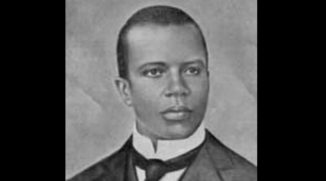
Especially after his father left the family, the Joplins struggled financially, but 11-year-old Scott was tutored in music for 5 years free of charge by German-Jewish music professor Julius Weiss after Weiss recognized the family’s extreme poverty and the boy’s unique talent. Before he died at age 48, Joplin wrote 44 original ragtime pieces, a ragtime ballet, and two operas (one of which, Treemonisha, was finally produced in full, to wide acclaim, in 1972).
His music was repopularized in the Oscar-winning film The Sting that featured several of Joplin’s compositions, most notably “The Entertainer”. In 1976, Joplin was posthumously awarded a Pulitzer Prize. (1868)

29 years ago today, Ireland narrowly voted to legalize divorce, ending a 58-year-old ban. The Catholic Church was strongly against the amendment, but told their congregations that they could vote for the amendment in good conscience, and it would not be a sin to do so. The referendum was passed 50.28% to 49.72% and became the Fifteenth Amendment of the Constitution of Ireland. (1995)
82 years ago today, Billy Connolly, the Scottish comedian, and musician, who was knighted at Buckingham Palace for his services to entertainment and charity, was born.
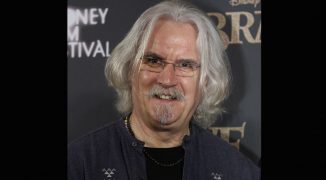
Born into poverty and abandoned by his mum at age 4, Connolly found great joy in making people laugh. As an actor, he starred in A Series of Unfortunate Events, Brave, Mrs Brown, The Boondock Saints, and The Hobbit: The Battle Of The Five Armies. He was diagnosed with Parkinson’s disease in 2013. (1942)
165 years ago today, the British naturalist and geologist Charles Darwin published On the Origin of Species explaining his theory of evolution. The first edition—which has been voted by publishers and librarians as the most influential academic book ever written—introduced the scientific theory that populations evolve over the course of generations through a process of natural selection. It presented a body of evidence that the diversity of life arose by common descent through a tree-like branching pattern of evolution. Darwin included evidence that he had gathered on expeditions to South America in the 1830s and his subsequent findings from research and experimentation, and showed how natural selection is a scientifically testable mechanism.
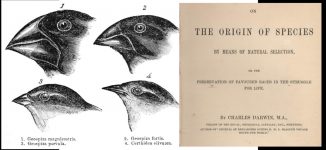
Within two decades widespread scientific agreement solidified that evolution had occurred, and by the mid-20th century Darwin’s concept of evolutionary adaptation through natural selection became central to modern evolutionary theory—and the unifying concept of the life sciences.
Modern evolutionary theory continues to develop, but his writings still explain the diversity of living organisms and their adaptation to the environment; make sense of the geological record; and hold up under modern genome analysis.
Because of church teachings at the time, his theory was much maligned, but clergymen later came to accept natural selection, explaining it as an instrument of God’s design. The Vatican stated its official position in 1950, which held that evolution was consistent with Catholic teachings. Darwin, himself, believed at the outset that God had been creating life through the laws of nature. WATCH an animation about how little finches were crucial to his discovery, and how pepper moths evolved due to pollution… (1859)
(See Also: Children’s Books About Charles Darwin)
SHARE The Milestones, Memories, and Music…




















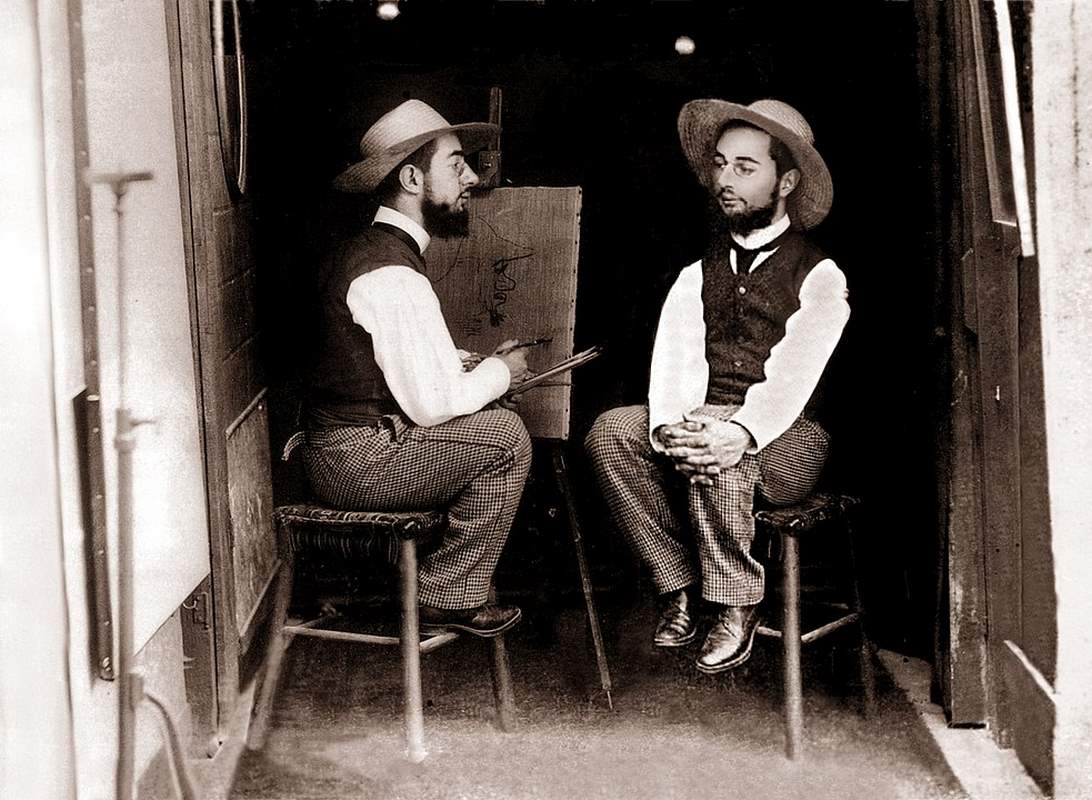
[…] By Good News Network […]
[…] The Good News Network […]
[…] Posted From: https://www.goodnewsnetwork.org/events061124/ […]
[…] post Good News in History, November 24 appeared first on Good News […]